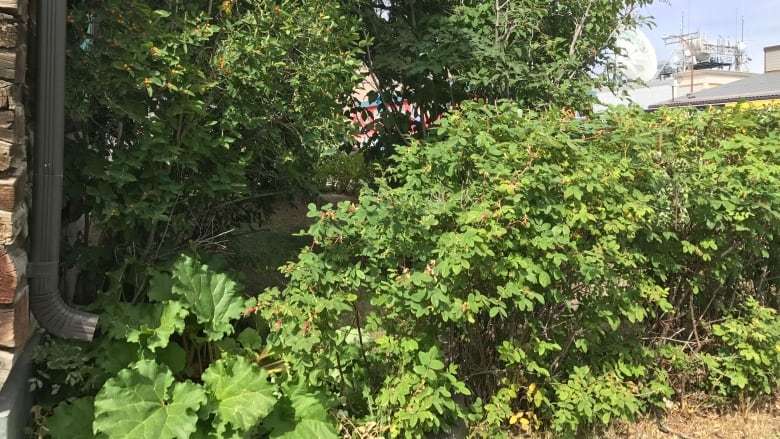Yukoners noticing more stinging insects — and stings — this summer
Pest control specialist in Whitehorse says he's getting a lot more calls about stinging insects

Whitehorse resident Murray Lundberg went on Facebook this week with an observation shared by many this summer.
"After not being stung in decades, I just got nailed for the 3rd time in a month. The first time, I got stung several times and my foot and ankle swelled up like a balloon," he wrote.
"They may not technically be 'bees' — little black and yellow stingy things," wrote Lundberg.
They're probably not bees and there are a lot more predatory wasp-like insects out and about this summer in Whitehorse, said Calvin Gillings, one of the city's pest control providers.
Gillings said the most common stinging insects in Yukon are yellow jackets, bald-faced hornets and European honeybees.

He said his calls for service this year are probably double what they were last summer, and people are likely getting more stings in recent days.
"Definitely with the heat coming on, the stinging insects are more active, causing more stings," said Gillings.
Yellow jackets and hornets are carnivores, with aphids being a common meal for them, Gillings said. If there are more aphids this summer than usual, that could account for increased carnivores.
They're often seen buzzing around the front of parked vehicles looking for roadkill — dead bugs stuck on the grill — to carry away, he said.

"They're very territorial as well, that's why they attack you, because they're very territorial with their nests."
Gillings said many people deal with getting rid of insects themselves, but they can certainly call professionals for hard-to-get-at-nests or if they just don't want to do it.
People should first determine if the insects are European honeybees, yellow jackets or the bald-faced hornets, he said.

Gillings recommends leaving hanging nests in place if possible. The pheromones of the previous occupants will deter other stinging insects from the area.
He adds many yellow jackets and hornets actually live in underground nests or in bushes and trees.
European honeybees live on pollen and help the environment by pollinating plants. For that reason, he said, people may not want to exterminate them.
"I really don't encourage people to destroy European honeybees, because they are a beneficial species and they are on the decline," he said.
The yellow jackets and hornets are not pollinators, but "everything in nature has their place," he said.
With files from Tara McCarthy